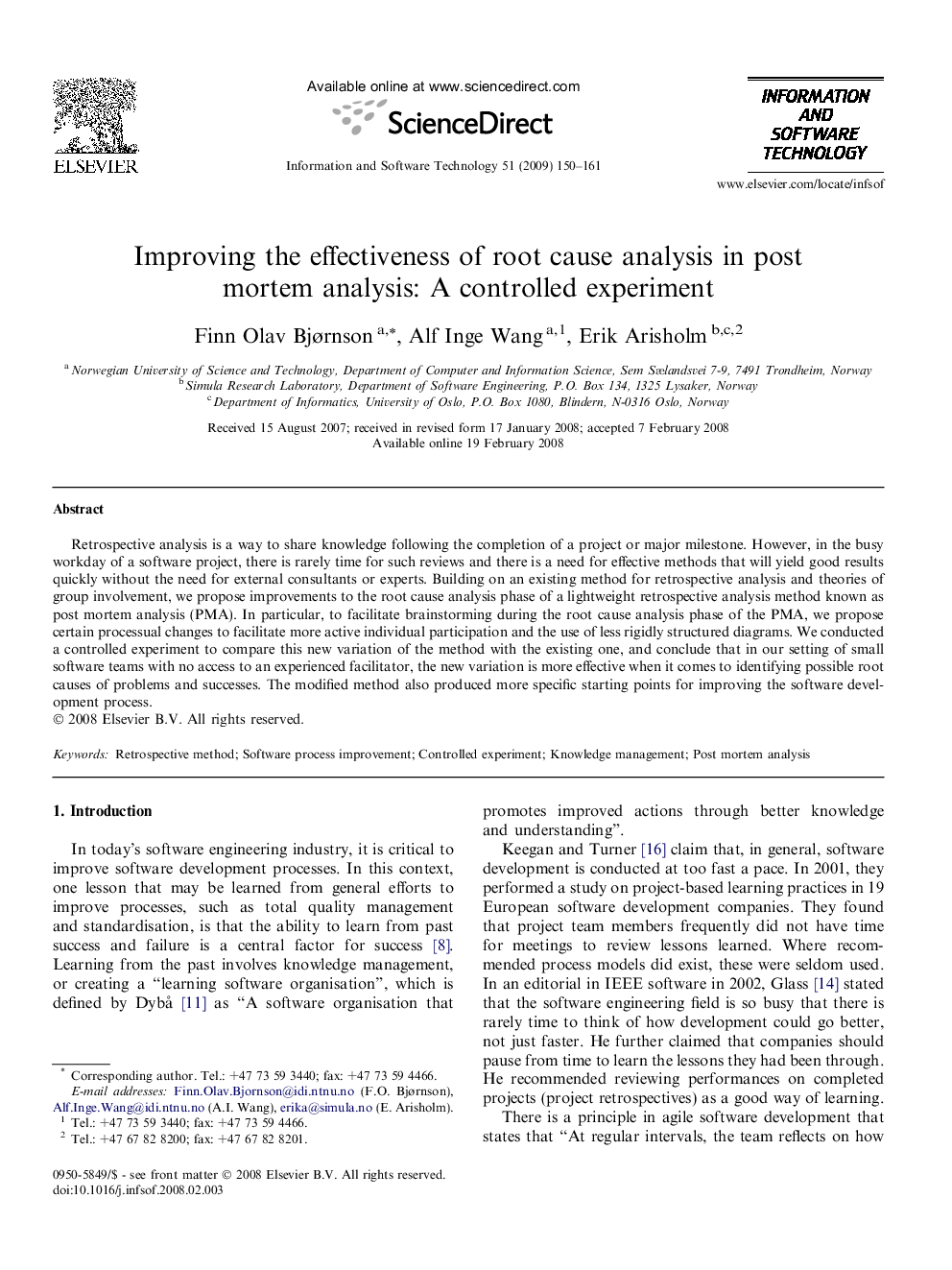| Article ID | Journal | Published Year | Pages | File Type |
|---|---|---|---|---|
| 552024 | Information and Software Technology | 2009 | 12 Pages |
Retrospective analysis is a way to share knowledge following the completion of a project or major milestone. However, in the busy workday of a software project, there is rarely time for such reviews and there is a need for effective methods that will yield good results quickly without the need for external consultants or experts. Building on an existing method for retrospective analysis and theories of group involvement, we propose improvements to the root cause analysis phase of a lightweight retrospective analysis method known as post mortem analysis (PMA). In particular, to facilitate brainstorming during the root cause analysis phase of the PMA, we propose certain processual changes to facilitate more active individual participation and the use of less rigidly structured diagrams. We conducted a controlled experiment to compare this new variation of the method with the existing one, and conclude that in our setting of small software teams with no access to an experienced facilitator, the new variation is more effective when it comes to identifying possible root causes of problems and successes. The modified method also produced more specific starting points for improving the software development process.
